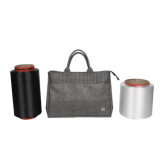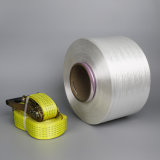The days are colder, the leaves are falling, and Boston residents are starting to bundle up when they leave the house. The changing season also gives the city’s fiber arts community a chance to show off an array of homemade sweaters, scarves, hats, and more, and stock up on yarn before launching into new projects.
This year, yarn and craft store Boston Fiber Company is ready to greet them. The store, which was founded by longtime knitter Sara Ingle, stocks a wide variety of supplies for fiber artists of all kinds, including yarn, knitting needles and crochet hooks, embroidery kits, and other tools. Spun Colors Yarn

The storefront itself appears to be designed with crafters in mind. The windows span from floor to ceiling, allowing natural light to fill the space. A pegboard wall covered in yarn greets customers near the entrance, with cubbies below brimming with skeins in a multitude of colors. A table in the center displays candles, crystals, and other knick knacks. A variety of colorful sweaters and cardigans hang on display for those seeking artistic inspiration. Couches and armchairs are arranged around a coffee table in one corner, inviting patrons to sit down and pick up their latest work-in-progress.
The shop, which is in Bead + Fiber’s old storefront in the SoWa Art and Design District, opened in July. But Ingle, who identifies as nonbinary and uses both she and they pronouns, said their dream of opening their own store has been a long time coming.
Ingle started working at Bead + Fiber as a yarn instructor for the knitting classes in 2018. Gradually, they said, they began to take on more of a managerial role, until they were managing the entire “fiber” branch of the store, stocking all the yarn and managing the accounting.
“[Eventually] I was like, ‘I want to open my own place,’” they said. With Bead + Fiber tackling both jewelry and fiber arts, they added, “neither side was able to grow. So originally I was going to take all the yarn and find another space, and then it kind of worked out that I got to stay in this space.”
Part of Ingle’s ethos for their new business is to stock yarn from local crafters and people of color, including Boston’s East Coast Yarn Company (yarn starts at $27 per skein), Hyde Park-based Lady Dye Yarns ($30 per skein), and You Knit I Dye ($32 per skein), that hails from Braintree. They also stock a small collection of hand-spun yarn from queer-owned yarn maker Siren Spun. Bigger suppliers include Loopy Mango(yarn starts at $16 per skein), Blue Sky Fibers ($15 per skein), and Kelbourne Woolens ($10 per skein).
In the short time Boston Fiber Company has been open, Ingle has built up a small flock of loyal patrons. They offer classes for aspiring fiber artists to learn the basics of knitting, crochet, weaving, and embroidery. They also host biweekly “Sip and Stitch” events on Friday evenings, where attendees can bring a piece that’s still in progress to the store and socialize with other patrons while working on their projects.
For Ingle, Boston Fiber Company is about more than just supplying yarn for local crafters. They are using their store to foster a close-knit fiber arts community and push for social change through the dyers they promote, the organizations they raise money for, and the atmosphere they create within their store.
At one end of the shop, they stock a sale section full of vintage yarn for $5 a skein, including some yarn that belonged to their late grandmother.
“I always tell people to start there, because it’s nice yarn you can have, and then upgrade to more expensive yarn.” Ingle said. Knowing that the cost of yarn and other knitting supplies can quickly add up — especially when sourced locally and ethically — they hope to maintain an inventory that will appeal to as wide a range of customers as possible.
“It’s very important to me that we be a space that’s accessible, especially for people with all different incomes,” Ingle said. Though cheaper synthetic yarn is available from stores like Michaels, they added, “I want to make sure everyone can buy things and enjoy yarn and have nice yarn.”
Half of the money from the sale section yarn will go toward a charity that will rotate every two months. The first organization Ingle chose is the Women’s Prison Book Project, a Minneapolis-based nonprofit that provides free books to incarcerated women. Reading was a huge part of their grandmother’s life, Ingle said, so it felt fitting that their yarn would help provide books to other women. Ingle was drawn to the organization’s mission for a different reason.
“I had a friend who was in prison for a little bit and she said reading just really saved her,” Ingle said. In addition to donating the proceeds from the sale yarn, she plans to buy some books from their wishlist to send in.
“I’m a big fan of prison abolition,” Ingle said. “I don’t know if my grandma would be into it, but I figured this was a good way to combine our interests.”
Ingle was ultimately able to raise $375 through their fundraiser for the Women’s Prison Book Project, and $440 for the Trans Asylum Seekers Support Network during September and October. The current fundraiser will go toward the Massachusetts Organization for Addiction Recovery and will last through the end of December
And Ingle’s attention to social issues is something patrons are noticing; for many, it’s part of the appeal of shopping at their store. Julia Steen, a knitter based in Wellesley, reached out to Ingle for help collecting knitwear donations she was trying to assemble for St. Francis House, a Boston-based homeless shelter.
“I asked Sara , basically as soon as I found out about her shop, if she’d be willing to get involved with that, and she said yes without hesitation,” Steen said.
As their business grows, Ingle said, they hope to carve out a niche in the Boston knitting scene.
“There are knitting stores [where] you go to a city and you go to a specific knitting store,” they said. “My big goal is to be the destination store for Boston.”
To hear Steen tell it, Ingle is well on their way to achieving that aim.
“There’s so many yarn stores where you walk in and you feel you’re not really welcome,” Steen said. “As soon as I walked into Sara’s [store], even though I’m part of the old, white, female knitting community, I felt so much more comfortable in her shop because it was just so much more welcoming to everybody.”
Maya Homan can be reached at maya.homan@globe.com. Follow her on Twitter @MayaHoman.

Polyester Industrial Yarn Work at Boston Globe Media